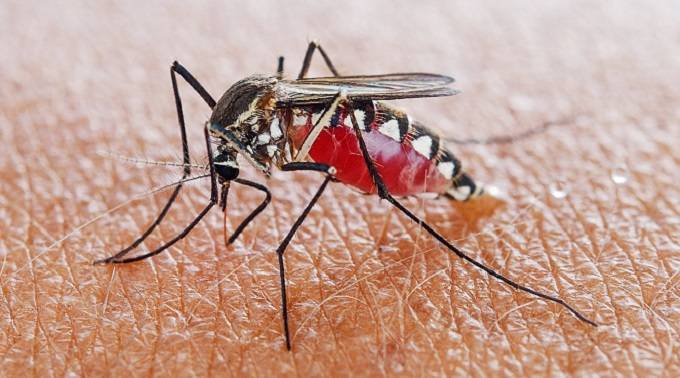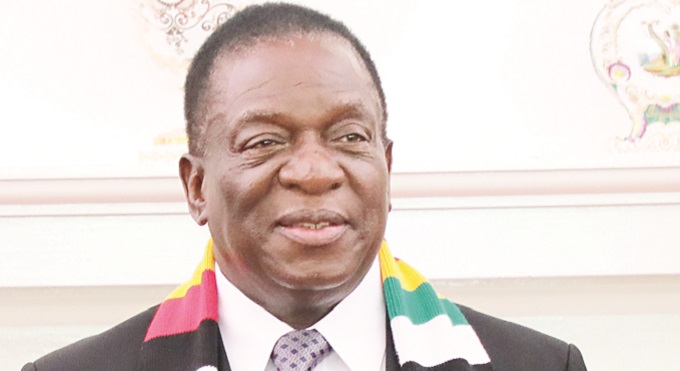Stay safe from malaria, menacing mosquitoes

Andile Tshuma
The long awaited rainy season is now upon us and at its peak. This has most likely brought relief and smiles on the faces of farmers who have been apprehensively waiting for it over the past few weeks as the scorching heat had threatened to derail farming activities.
However, while we welcome the rains as our livelihood and economy are agriculture dependent, we ought to spare a thought for people living in malaria zones most of whom are at the mercy of the mosquito borne disease.
Besides the malaria threat, the rainy season is synonymous with the menace of mosquitoes. Mosquitoes are such a menace and sometimes no matter how much you spray a few can buzz in your ear menacingly through the night, and sometimes mosquitoes can find their way into your sleeping net, and a cage fight erupts and they are usually the winners.
If you are not staying in a malaria prone zone but hate mosquitoes, it is important to ensure that there are no stagnant pools of water near your home. Do away with any containers lying around that can contain rain water and help mosquitoes breed. Also keep the grass short and trimmed around your yard and if possible spray pesticides around the home.
If you are to visit a malaria prone zone, it is important that you get treated, take the malaria prevention course to keep yourself safe and sleep under a treated net throughout the duration of your stay in the malaria prone zone. Make sure that there are no containers lying around with water in as that stagnant water is a possible breeding place for mosquitoes.
In Zimbabwe, malaria is prevalent during the rainy season and a few months after and out of the 60 rural districts, 51 are malaria transmission zones and the disease accounts for thirty to fifty percent of outpatient attendances at clinics and hospitals, according to a 2016 report on malaria.
In Matabeleland Region, malaria prone districts are Bulilima, Mangwe, Matobo, Gwanda, Binga, Tsholotsho and Hwange.
Malaria spreads rapidly in moist weather and our weather at this time is generally moist and that is why the percentage of affected people is comparatively more than other African countries.
The necessary precautions for malaria are taking anti-malaria medicines at regular intervals, using pesticides and other such medicines in order to kill the malaria mosquitoes, use of mosquito repellants when going outside and regular visits to clinics for tests.
Some of the common symptoms for malaria are headache, cough, cold, fever and diarrhoea.
If you find yourself having such symptoms, especially if you stay in or have recently visited a malaria prone zone, it is wise to visit the doctor or a clinic to get tested and treated.
In Zimbabwe, malaria is the third highest killer across all age groups after HIV and tuberculosis.
Government has over the years made concerted efforts to fight the disease and on 25 April, the world will commemorate Malaria Day. It is a good time as a country to work now, ahead of the day and make efforts to ensure that every citizen plays their role in the fight.
According to the Ministry of Health and Child Care it is better to fight the disease in a small area where it is easy to contain than when it is spread across a large area as a lot of resources will be used with little impact to those affected.
The World Health Organisation states that malaria is the world’s leading cause of childhood mortality, killing one child in every 30 seconds. The disease mostly affects children under the age of five years and expectant mothers.
Despite all this, access to medication and the cost of treatment remain barriers for people living in malaria affected regions.
In 2010, Matabeleland North recorded the worst malaria outbreak since 1996 and frantic efforts were made to confine the disease to Hwange and Binga districts.
Malaria remains the biggest killer disease, not only in Africa but across the African continent. However, it appears that all attention has been grabbed by HIV and Aids and tuberculosis.
More than half a million people including children succumb to the disease every year.
Measures taken by government to reduce cases of malaria over the years have included vector control, early diagnosis and prompt treatment with effective anti-malaria medicines such as coartemether.
Other measures were community involvement and participation in malaria prevention and control, early detection, containment and prevention of epidemics.
The disease is mostly prevalent during the rainy season, which is now at its peak across the country despite its late start. The momentum in the fight against malaria should always be kept alive and constant.
There is absolutely no need for the country to continue losing lives to curable insect borne diseases such as malaria.
There is a lot that can be done to ensure that the country rids itself of malaria, and generally that the whole of tropical Africa and the reduction of the malaria incident rate is a huge leap towards that goal.
Throughout this rainy season, ensure that you and your family stay safe from malaria and the menacing mosquitoes. Keep mosquitoes away from your homes for more peaceful nights. – @andile_tshuma









Comments